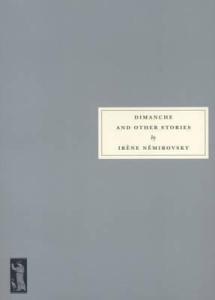
Title: Love and Other Consolation Prizes
Author: Jamie Ford
Format: eBook, courtesy of NetGalley and Random House Publishing Group – Ballantine
Start Date: August 15, 2017
End Date: August 21, 2017
Rating: 4 stars
“There are people in our lives whom we love, and lose, and forever long for. They orbit our hearts like Halley’s Comet, crossing into our universe only once, or if we’re lucky, twice in a lifetime. And when they do, they affect our gravity.”
Jamie Ford’s latest novel, Love and Other Consolation Prizes weaves a story of love, loss, and redemption, as it tells the story of a young man and his search to belong.
In the early 1900s, young Ernest (at that time, Yung Kun-ai), was taken from his homeland of China after witnessing a horrific act from his mother. As a five-year-old with a mother unable to care for him, Ernest is taken to America, desperately in hope of a “better life.” He became a charity case at a boarding school, but as a half-Chinese boy, he didn’t quite fit in. In 1909, during a visit to the breathtaking Seattle’s World Fair, he is raffled off as a prize to the person with the winning ticket. It is here that he finally finds what he’s always wanted – a place to belong.
The atmosphere of the Tenderloin, led by the gregarious Madam Flora, clashed significantly with his previous boarding school and moralistic mistress, Mrs. Irving. It was an interesting juxtaposition between what was thought of as “moralistically good” and “moralistically bad” – the woman leading the charge of strict morals was also the same woman who raffled off young Ernest; yet, the woman fighting for looser morals was the one who provided young Ernest with a family and a home, unconventional though it might be.
Beyond this, the idea of buying and selling humanity played a crucial role in the plot of the story. The only reason Ernest was in America was because he was supposedly sold by his mother, who couldn’t afford to care for him anymore; he was a charity case at a boarding school and eventually raffled off like an unwanted thing to the Tenderloin, a house which “sold” women out as prostitutes. The idea of fate and destiny played a large role in the story as well.
“My theory,” Maisie said, “is that the best, worst, happiest, saddest, scariest, and most memorable moments are all connected. Those are the important times, good and bad. The rest is just filler.”
The cathartic nature of memories was also important. Gracie had been diagnosed with neurosyphilis, which had been latent since contracted in her days working as a prostitute. Neurosyphilis can present Alzheimer-like symptoms in patients, like in Gracie. It wasn’t until she started to come to terms with her past, subconsciously wrestling with the idea that she wasn’t good enough, that she was finally able to start to heal.
As Ernest watched her struggle to reconcile the past with the present, he thought about … tragic endings that couldn’t ever be fixed. But that’s when Ernest understood. Sometimes you need to feel the sadness, you need to feel everything to finally leave it behind, to have peace.
What I really like about Jamie Ford’s writing is he has a way of drawing the reader in. He alternated between 1909/1910 and 1962 in a way that, although over 50 years apart, seemed to be running side-by-side, slowly closing the gap and leading to the “big reveal.” Although the identity of Gracie (Fahn? Maisie?) was a major plot point of the story, it wasn’t the main point. It didn’t matter who Gracie was, what mattered was Ernest’s love and devotion toward her, even when she didn’t remember her love toward him; what mattered was the life they built together, the legacy they would pass onto their daughters; what mattered was their survival in a world that wasn’t always kind or fair, but their eventual triumph.
And that was both lovely and poignant.
The similarities between Love and Other Consolation Prizes and Hotel on the Corner of Bitter and Sweet were several, including: a Chinese boy and potential Japanese girl love interest; alternating timelines (the former between 1910s/1960s and the later between 1940s/1980s); and the mention of the Panama Hotel (though it only served as a hidden “Easter egg” in the former, it was a major plot point in the later).
I really enjoyed Love and Other Consolation Prizes. It was surprising and lovely and heartbreaking and captivating, all rolled into one. I look forward to reading more of Jamie Ford in the future.
Thank you to NetGalley and Random House Publishing Group – Ballantine for an advanced copy of this eBook in exchange for an honest review!
Advertisements Share this:




